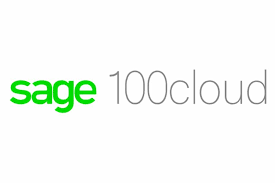
How can SMEs benefit from an ERP solution?
When it comes to maintaining the complex operations of a modern business, the software platform a business chooses to use is one of the most fundamental factors in business success. With SMBs, this choice is especially critical because budget limitations and larger competitors translate into a serious need for efficiency and cost-effective design.
With several ERP solutions available in the market today, choosing the right one requires considering many factors. For SMBs, a major factor is the choice between local and cloud hosting. A cloud-hosted ERP offers a number of advantages for SMBs over a traditional ERP on a local server. A cloud-based ERP is often more flexible and able to adapt to a growing and constantly changing business model, such as that of a small or medium-sized business. Startup and maintenance costs are also much lower with a cloud-hosted solution, as they are often included in license fees.
Feature Comparison
The table below outlines some of the most important features an ERP solution can offer, broken down into ten categories: Sales, Customer Relationship Management, Accounting and Finance, Marketing, Warehouse Management, Manufacturing, Purchasing, Services and Projects. , human resources and usability and productivity. . These categories encompass nearly everything an SME might need to manage, grow, and scale their business operations. The comparison will demonstrate the availability of these features with detailed analysis for Odoo vs Sage.

Sage
"INTEGRATED MANAGEMENT SOLUTIONS ADAPTED TO YOUR NEEDS"
Sage 100 Enterprise i7 offers different modules in the main categories: Sales, CRM, Manufacturing, Accounting & Financial Management.
Dedicated to SMEs, Sage 100 Enterprise i7 adapts to new work practices and allows more flexibility.
100 000+
client organizations
70+
countries in the world
3ème
ERP editor in the world
3500
reseller partnerreseller partnerts

Odoo
"INTEGRATED MANAGEMENT SOLUTIONS ADAPTED TO YOUR NEEDS"
Odoo is a suite of open source business applications that covers all your business needs: CRM, eCommerce, accounting, inventory, point of sale, project management, etc.
Odoo's unique value proposition is to be both very easy to use and fully integrated.
2+
million users
120+
countries in the world
730
official partners
7 300
Apps in the store
- Sales
- Quotation to orders
- Electronic signature
- Online payment
- quote template
- Upsell
- Subscriptions
- Product variants
- Configurable products
- Kits
- In-store sales
- Point of sale (retail)
- Point of sale (restaurant)
- eCommerce
- CRM
- Nurture prospects
- Track rating
- Lead management
- Opportunity Management
- Pipeline management
- Third party management
- Calls / Meetings / Mail
- VoIP
- Customer history
- Email template
- Opportunity analysis
- Accounting and finance
- Cost accounting
- budgets
- Expenses
- fixed assets
- Real-time inventory valuation
- Deferred revenue
- Check management
- Billing
- Third Party Tracking
- International localization
- Multi-company
- Multi-currency
- Marketing
- Broadcast list
- Blog/Webpage
- Events
- Marketing Automation
- Contact segmentation
- Surveys
- Social media
- Gestion de stock
- Basic inventory
- Multi-warehouse
- Traceability, serial numbers
- Expiry dates
- Multiple measurement units
- Stock valuation
- Real-time reports
- Forecasts
- Logistic rules
- Customer portal
- Barcode management
- MRP
- Cost
- PLM
- Spreadsheets
- Traceability
- Quality management
- Repairs
- Maintenance
- Planning
- Product variants
- Multi-level BOMs
- Purchases
- Price request
- Tender
- Prices and discounts
- Make-to-Order (MTO)
- Minimum inventory
- MPS
- Invoice control
- Receiving control
Sage
$ 150
/ month per user-
-
-
-
-
-
-
-
-
-
-
-
-
-
-
-
-
-
Odoo
$ 8
/ month per user-
-
-
-
-
-
-
-
-
-
Conclusion
Often SMBs will find that they need software but are unable to implement it given the high level of overhead and the complexity of the task. For growing businesses, it is much more optimal to start small in a software solution and add new features as the business grows and evolves. In most practical cases, a flexible, modular approach works best for SMBs because it gives the business the freedom to quickly adapt to change.
Offers
Business needs will never stop fluctuating, especially in a growing business. Traditional SMB practices are now becoming obsolete as more powerful and dynamic solutions become available. Selecting the best option is no longer limited to the one that is best for your business today, but also the one that is best for your business in the future. Planning for long-term success with an easily adaptable software solution can be the key decision in the long-term development and growth of your business.
source